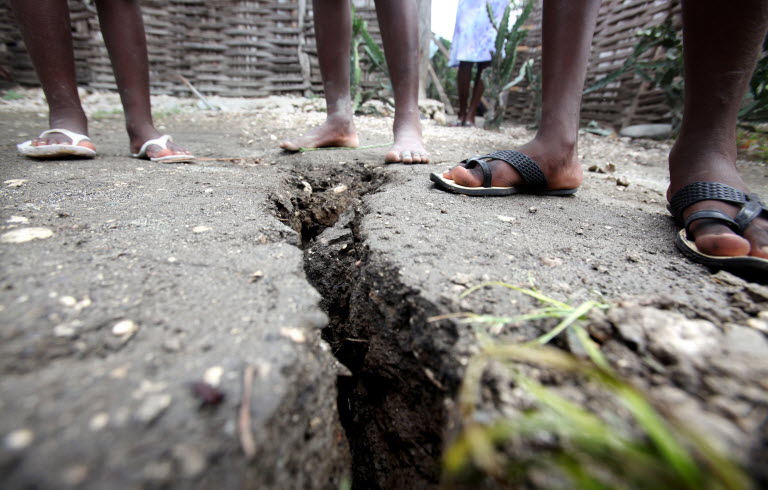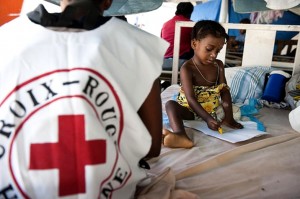2011 & 2012 Years in Review
About Global Centurion Foundation
Global Centurion Foundation (GCF) is a non-profit organization fighting modern slavery by focusing on the demand side of the equation the perpetrators, exploiters, buyers, and end-users of human beings who fuel the market for commercial sex and forced labor.In this way we seek to prevent modern slavery at its source.
Message from the President
More children, women and men are victims of modern-day slavery today than at any other point in history. While there are many organizations that focus on supply (rescue, restoration for trafficking victims), and many focusing on the traffickers (arrest, prosecution, conviction), GCF targets the demand side of the equationthe perpetrators, exploiters, buyers and end-users of human beings, seeking to prevent modern slavery at its source.
Since 2010, GC has employed a unique, three-pronged approach to addressing demand:
1. Developingdemand-reduction programs and research;
2. Providing innovative education, awareness and advocacy training to communities, civic leaders, NGOs, law enforcement and at-risk populations; and,
3. Establishing partnerships and collaborative networks to address human trafficking.
I hope upon reviewing the following report of our progress that you’ll be as encouraged and excited as I am about what we have accomplished and will join wholeheartedly with us in expanding the fight against human demand.
Warmly,
Laura J. Lederer, J.D.
President & Founder
2011-2012: Years in Review
I. Developing Demand-Focused Research & Programs
Criminal Street Gangs and Human Trafficking: Establishing the Link
During the last fifteen years, criminal gang activity in the United States has become a serious problem. At the same time, human trafficking has emerged as one of the fastest growing crimes in the U.S. In 2011 & 2012, Global Centurion Foundation:
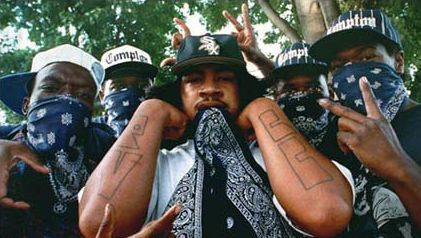
- Uncovered over two hundred cases in which gang members have been involved in human trafficking (recruiting, transporting, harboring, obtaining, or selling a person for purposes of commercial sexual exploitation or involuntary servitude).
- Analyzed gang and TIP-related case law for patterns, including recruitment methods, methods of coercion and control, age of trafficking victims, and more.
- Investigated demand in street gangs, including marketing techniques and outreach to buyers, specialized market segment identification
- Examined anti-gang and anti-trafficking law and policy and drew up a set of recommendations for government officials, policy-makers, community leaders and educators. The work influenced members of Congress, as well as state and legislators, resulting in new laws addressing the link between street gangs and sex trafficking.
- Worked with a local service provider,Courtneys House, to create presentations for Washington area community centers, churches, and schools to educated citizens and students about the dangers of sex trafficking in street gangs.
- Led webinars establishing the link between street gangs and human trafficking that reached approximately 1,000 individuals.
- Published Sold for Sex: The Link Between Street Gangs and Human Trafficking, Journal of Human Rights, the Protection Project, School of Advanced International Studies, Johns Hopkins University, November 2011.
First Offender Prostitution Programs (Johns Schools) Survey
 Currently there are thirty-nine documented First Offender Prostitution Programs in the United States and eight in Canada. In an effort to better understand the nature and scope of the programs, as well as their efficacy in addressing demand, Global Centurion Foundation:
Currently there are thirty-nine documented First Offender Prostitution Programs in the United States and eight in Canada. In an effort to better understand the nature and scope of the programs, as well as their efficacy in addressing demand, Global Centurion Foundation:
- Conducted a survey of the schools to obtain a general overview of their offerings. The survey documented a wide variety of schools with a broad range of educational components including legal, health, societal, community and personal safety consequences of buying sex.
- Based on preliminary findings, several articles have been drafted and one published to date. A full report will be available shortly.
Mapping Hubs of Demand
Global Centurion has created a set of maps identifying major hubs of demand for sex trafficking and labor trafficking around the world. The purpose of these maps is to assist in understanding what drives the trade in human beings worldwide. Most current information on human trafficking focuses on the victims, including the number of victims, their age, their nationality, and the harms they have suffered.
 These maps focus for the first time on the end buyer/user/exploiter. They give viewers a global look at the various types of demand. For example, in sex trafficking, major demand hubs are created by sporting events such as the Superbowl or World Cup; U.S. and other military presence or other R & R in economically or politically unstable countries; and sex tourism and child sex tourism, and more. In labor trafficking, any product that is labor intensive (i.e., requires many human beings to produce) has the potential for creating conditions of demand for labor trafficking and slavery. These include garment worker factories; agricultural work; construction work, mining of diamonds, gold and other valuable minerals; domestic workers, and more. This project is on-going: other hubs of demand are added to the maps as they are identified and documented.
These maps focus for the first time on the end buyer/user/exploiter. They give viewers a global look at the various types of demand. For example, in sex trafficking, major demand hubs are created by sporting events such as the Superbowl or World Cup; U.S. and other military presence or other R & R in economically or politically unstable countries; and sex tourism and child sex tourism, and more. In labor trafficking, any product that is labor intensive (i.e., requires many human beings to produce) has the potential for creating conditions of demand for labor trafficking and slavery. These include garment worker factories; agricultural work; construction work, mining of diamonds, gold and other valuable minerals; domestic workers, and more. This project is on-going: other hubs of demand are added to the maps as they are identified and documented.
International Human Trafficking Case Law Database

GCs anchor research project is an International Case Law Database, the purpose of which is to create a searchable, longitudinal database of all forms of human trafficking including sex trafficking, labor trafficking, forced labor, bonded labor, debt bondage, involuntary domestic servitude, forced child labor, child soldiers, child sex trafficking, child sex tourism, commercial sexual exploitation of women and children. The project uses case law to obtain data on perpetrators, victims and the patterns of these crimes within and between countries.
More than 10,000 human trafficking cases (arrests, prosecutions, convictions) have been reported by governments in the last ten years. Global Centurion has developed a unique methodology for identifying, analyzing, and coding these foreign national cases and extracting relevant data points to include in the database. The database contains data that provides victim profiles, perpetrator profiles, and crime profiles.
II. Providing innovative education, awareness and advocacy training to communities, civic leaders, NGOs, law enforcement and at-risk populations.
Haiti Human Trafficking Project: Preventing Trafficking After a Natural Disaster
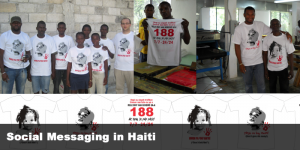 Following the earthquake in Haiti in 2010, Global Centurion brought a dozen NGOstogether in partnership to form the Haiti and Human Trafficking Coalition (HHTC). The Coalition designed projects to raise awareness about the ways in which vulnerabilities following a natural disaster can lead to human trafficking. Global Centurion spearheaded these low-tech, grass-roots social marketing and education campaign. The campaign is designed to reach Haitians by distributing deliverables with messaging on them.
Following the earthquake in Haiti in 2010, Global Centurion brought a dozen NGOstogether in partnership to form the Haiti and Human Trafficking Coalition (HHTC). The Coalition designed projects to raise awareness about the ways in which vulnerabilities following a natural disaster can lead to human trafficking. Global Centurion spearheaded these low-tech, grass-roots social marketing and education campaign. The campaign is designed to reach Haitians by distributing deliverables with messaging on them.
- Phase I of the campaign (2010-2011) included distributing approximately one million food packets with anti-trafficking messages, as well as creating and playing a series of Creole anti-trafficking jingles on popular radio stations in Haiti. In addition, GC developed specialized briefings for relief and development workers, health providers, U.S. military, UN peacekeepers and private contractors emphasizing the importance of best behaviors while defending or protecting vulnerable and at risk populations.
- In Phase II of the Project (2011 present), GC has trained approximately 60 Haitians, including health providers, attorneys, teachers, business leaders, pastors, and university students to serve as anti-trafficking trainers in their own communities. This train-the-trainers, sector-specific program has been presented in Creole, French and English.
Global Centurion Educational Curriculum
 Global Centurion has created a basic introduction to and overview of human trafficking for middle school and high school children and teens.
Global Centurion has created a basic introduction to and overview of human trafficking for middle school and high school children and teens.- The curriculum describes various types of human trafficking (sex trafficking and labor trafficking; international and domestic trafficking; adult and child trafficking). The course introduces students to international, foreign national and U.S. law and policy on human trafficking, how to identify victims, and common health concerns among trafficking victims as background for a demand-related approach.
- The primary purpose of the program is to create age-appropriate modules to reach young men and boys to help them make informed choices and reduce the demand in addition to helping young women and girls understand the triangle of activity in human trafficking.
- The curriculum includes a syllabus, teacher-training manual, basic materials and exercises, special in-class and extra-curricular projects; and inter-active media technologies activities. We are identifying schools and communities to pilot the program with in 2013.
Advising Policy & Leading Presentations on Street Gangs & Human Trafficking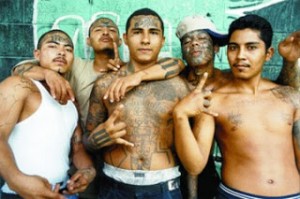
- Global Centurion analyzed over two hundred cases in which gang members have been involved in human trafficking to identify patterns, including recruitment methods, methods of coercion and control, age of trafficking victims, and more.
- Using this data, GCF drew up a set of policy recommendations for government officials, policy-makers, community leaders and educators, holding meetings attended by the Department of Justice, Department of Homeland Security and Health and Human Services.
- GCFs policy recommendations for federal and state legislators resulted in new laws addressing the link between street gangs and sex trafficking.
- In addition, working with a local service provider,Courtneys House, GCF created presentations for Washington area community centers, churches, and schools to educated citizens and students about the dangers of sex trafficking in street gangs.
Specialized Trainings Focused on Reducing Demand & Rescuing Victims
During the past two years, GC has been advising NGOs, FBOs, students, governments and community leaders on demand-focused issues relating to human trafficking, directly reaching over 7,000 key stakeholders including:
 GCF presented to 200 students at Liberty University, A History of the Development of the Trafficking Victims Protection Act, February 2011.
GCF presented to 200 students at Liberty University, A History of the Development of the Trafficking Victims Protection Act, February 2011.- Royal Family Kids, Keynote Speech, Training for Camp Directors, March 9, 2012, Irvine, California.
- GCF President Laura J. Lederer reached 1,500 students at South Texas College, in a speech titled: In Modern Bondage: Slavery in the 21st Century, McAllen, Texas, April 2011.
- GCF reached approximately 150 attendees at the Breaking Free, End Demand Conference, Demand Reduction in Human Trafficking, St. Paul, Minnesota, July 2011
- GCF President Laura J. Lederer reached approximately 1,000 Salvation Army personnel and other community leaders through a series of four webinars on Street Gangs & Human Trafficking, hosted by the Salvation Army, September 14th, 2011.
- GCF President Laura J. Lederer reached approximately 500 students through presentations on decreasing the demand for human trafficking at the Marist College, Research Association of Psychology Conference, November 30, 2011, Poughkeepsie, New York.
- Laura J. Lederer presented to 30 key human rights specialists at the U.S. Department of Defense, Annual Trafficking in Persons Conference, U.S. Department of Defense, Washington, DC, August 2011.
- GCF reached approximately 250 students at the Rice University, Gray/Wawre Lectures in Gender, Health and Well-Being, February 9, 2012, Houston, Texas, sponsored by the James A. Baker III Institute for Public Policy and the Center for the Study of Women, Gender and Sexuality.
- GCF joined the Hawaii Coalition Against Human Trafficking Training Conference at the University of Hawaii, Center for Hawaiian Studies, February 16-20, 2012, Honolulu, Hawaii, reaching over 1,000 Hawaiians during the five-day event.
- GCF reached over 400 Conference Attendees through SOUTHCOM, U. S. Department of Defense Human Rights Roundtable, February 27, 2012, National Defense University, Washington, D.C.
- At the Center on Faith, Justice and Global Engagement, GCF reached approximately 200 students at Houghton College in Houghton, New York: The Business of Human Trafficking: Addressing Demand as an Abolition Tactic,, March 22, 2012.
- GCF reached approximately 250 attendees at the Demand Change Heartland Conference in Kansas City, Missouri, hosted by Veronicas Voice Safe Center, April 13, 2012.
- GCF President Laura J. Lederer met with the International Security Officers Association, leading 40 of their members in a presentation: Labor Trafficking in Procuration and Contracting Washington, DC; May 1, 2012. The presentation has been made available to 750 of the Associations participants.
- SOUTHCOM, U.S. Department of Defense, Human Rights Initiative: GCF President Laura J. Lederer presented a 3-day training for foreign national military representatives, representing Central America, South America and the Caribbean, May 24-27th, 2012, Guatemala City, Guatemala, which reached over 1,000 foreign national military personnel.
- GCF reached 200 participants at the Protection Project, School of Advanced International Studies, Seventh Annual November Symposium on Trafficking in Persons, in a presentation entitled: The Procedural and Substantive Elements of Prosecuting Cases of Trafficking in Persons: Comparative Models and International Standards, November 6, 2012, Washington, DC. (GCF has participated for the past four years, reaching 800 participants total)
- GCF President Laura J. Lederer led 200 students in a presentation at George Mason University, Curbing Demand as a Strategy to End Human Trafficking, Fairfax, VA; November 8, 2012.
- GCF President Laura J. Lederer presented Abolishing Human Trafficking in Government Contracts to 25 members of the Womens Bar Association of the District of Columbia, Washington, DC; November 8, 2012.
- In cities hosting the Super Bowl, Olympics, and other Big Games, GCF worked to help communities create a comprehensive plan to prevent trafficking, prosecute traffickers, and protect and assist victims, resulting in real lives saved (Over 30 children were rescued and over 84 arrests were made during the Super Bowl XIII in Tampa; In Dallas, police made 133 arrests and rescued 33 children as a result of coordinated efforts led by GC).
- GCF reached over 70 community leaders, business and corporate leaders, law enforcement personnel and policy makers during a keynote presentation entitled Stopping Human Trafficking: What Communities Can Learn from Past Super Bowls at the United States Attorneys Office, Eastern District of Louisiana, Human Trafficking Joint Task Force One Day Conference: Preparing for the Super Bowl 2013, November 29, 2012, New Orleans, Louisiana.
III. Establishing Networks & Partnerships to Fight Modern Slavery
Triple S (Stop Sex Slavery) Network
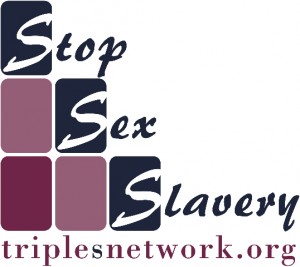 Global Centurion created a network of 85 survivor-centered service providers and anti-trafficking advocacy organizations across the United States. This network gives us unparalleled access to basic information about health, human services, and other needs of survivors across the U.S. and around the world. In addition, it provides a communication vehicle to bring the anti-trafficking community together when necessary to create action around a particular program or project. For example, last year, Craigslist came under scrutiny after a dozen cases of on-line child trafficking were uncovered on Craigslist. One of the largest organizations in the country, Polaris Project, sent out a petition calling on Craigslist to cease its erotic services ads. Polaris had three organization signatories until it contacted Global Centurion. We sent the petition around to Triple S Network members and within a week over 100 organizations had signed the petition which was then presented to Congress.
Global Centurion created a network of 85 survivor-centered service providers and anti-trafficking advocacy organizations across the United States. This network gives us unparalleled access to basic information about health, human services, and other needs of survivors across the U.S. and around the world. In addition, it provides a communication vehicle to bring the anti-trafficking community together when necessary to create action around a particular program or project. For example, last year, Craigslist came under scrutiny after a dozen cases of on-line child trafficking were uncovered on Craigslist. One of the largest organizations in the country, Polaris Project, sent out a petition calling on Craigslist to cease its erotic services ads. Polaris had three organization signatories until it contacted Global Centurion. We sent the petition around to Triple S Network members and within a week over 100 organizations had signed the petition which was then presented to Congress.
Haiti & Human Trafficking Network
Following the earthquake in Haiti (January 12, 2010) Global Centurion brought a dozen NGOs together in partnership to form the Haiti and Human Trafficking Coalition (HHTC).
Over the next year and a half, the Coalition designed projects to raise awareness about the ways in which vulnerabilities following a natural disaster can lead to human trafficking.
Norma Hotaling Awards
 Three years ago, Global Centurion Foundation established the Norma Hotaling Anti-Trafficking Awards, named in honor of Norma Hotaling, a survivor of sex trafficking and a light and leader who was an inspiration to all who are working to stop the commercial sexual exploitation of women and children.
Three years ago, Global Centurion Foundation established the Norma Hotaling Anti-Trafficking Awards, named in honor of Norma Hotaling, a survivor of sex trafficking and a light and leader who was an inspiration to all who are working to stop the commercial sexual exploitation of women and children.
Over the past two years, GCF has raised over $30,000 to recognize six outstanding individuals in three areas of anti-trafficking work: 1) survivor centered service providers; 2) innovative work to curb demand, and 3) policy work addressing systemic change. In this way we hope to honor and remember Norma and at the same time to support and recognize the work of abolitionists here in the U.S. and Canada who are carrying on her vision.


